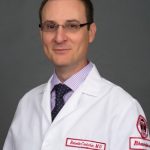During my fellowship, my program director insisted that we be responsible for making conference schedules, take control of who came to meetings, make sure that speakers showed up and see to it that topics were wisely chosen. That was a good start in creating the better, well-rounded leaders that we aspired to become after subspecialty training.
But what about properly managing and leading people in different and diversified professional settings? How about feedback concerning our leadership performance? I believe it is lacking in the current curricula and design of fellowship programs. Rather than complete fellowship with some experience in practical real-life leadership roles, we play catchup later on, mostly in the course of our jobs.
The winter storm provided me with such hands-on experience and humbled me with the realization that no longer am I responsible only for the safety and schedules of my family and myself, but also for a much broader scope of people: patients, the front desk, ancillary staff, colleagues, our students, residents and fellows. We may not often think about it, but many others do count on us for things other than medical care, treatment and administrative tasks. Those who work with us expect that things will be clearly communicated to them and that our expectations will be conveyed to them with a minimum of ambiguity.
Planning & Organization
In my experience, individual responsibility is not always clear or consistent in different circumstances, and it’s usually quite chaotic and stressful when no one knows who’s in charge and what is delegated to whom. Issues frequently arise regarding last-minute conference rescheduling, sick days and on-call coverage. It takes lots of planning, organization and professional behavior to make it all function somewhat smoothly. And, most of all, in my opinion, great flexibility is required to operate a well-run enterprise of teaching and patient care.
The snow emergencies don’t threaten every geographic area. We do, of course, have regions that enjoy relatively snow-free climates. However, even when I was in theoretically snow-free Texas, we had a paralyzing ice storm that revealed myriad problems for those who had to somehow figure out how to get to work over untreated roads. Even the sunny climes must deal with their own versions of emergency—floods, fires, earthquakes, tornados (Hello, Dallas!)—so the issues of preparedness and leadership won’t escape anybody in the medical field.
The dilemma over when and how to safely travel to work in inclement conditions is particularly challenging for the essential employees of our healthcare industry. I remember one of my junior colleagues, who was incredibly scared to drive on ice, but was still asked to see a consult during the ice storm. She told me that she literally feared for her life while traveling the icy local road. I now wonder, what would have been a practical solution to that scenario? Should the consult, if at all possible, be postponed? Should the attending physician, who presumably is more experienced and less petrified of winter driving, step up and do the consult alone? Perhaps the answer lies in communication, communication and still more communication.


